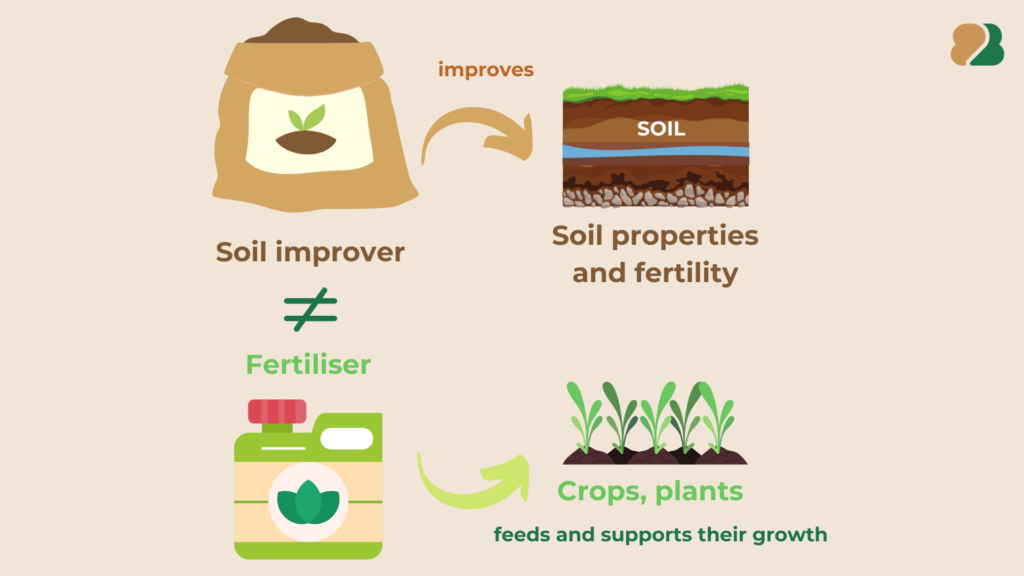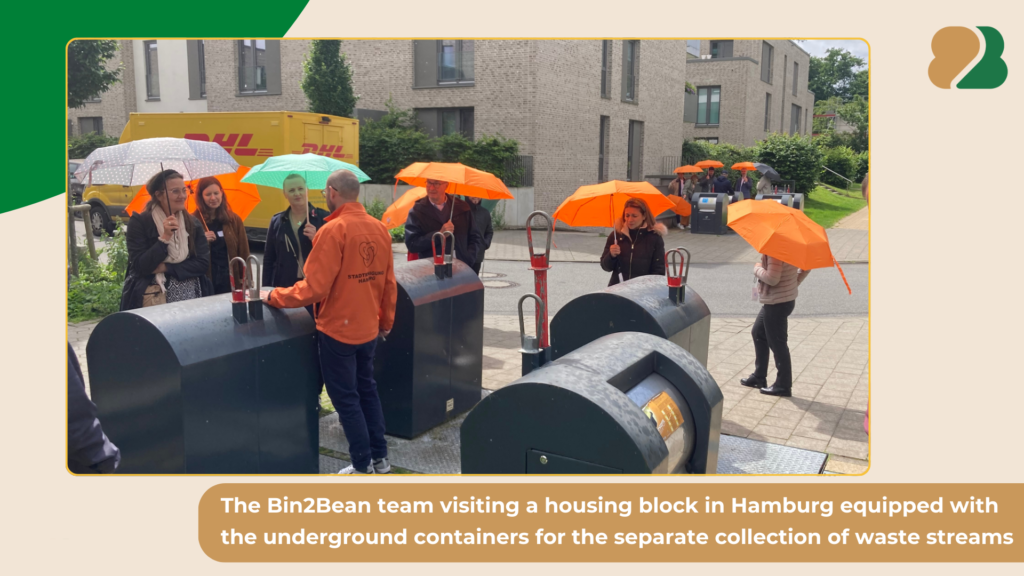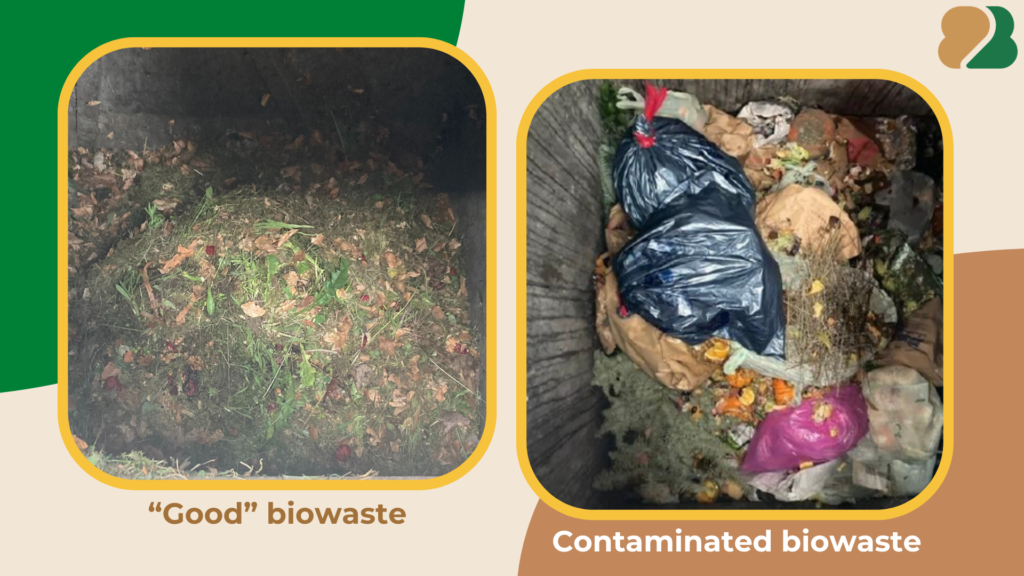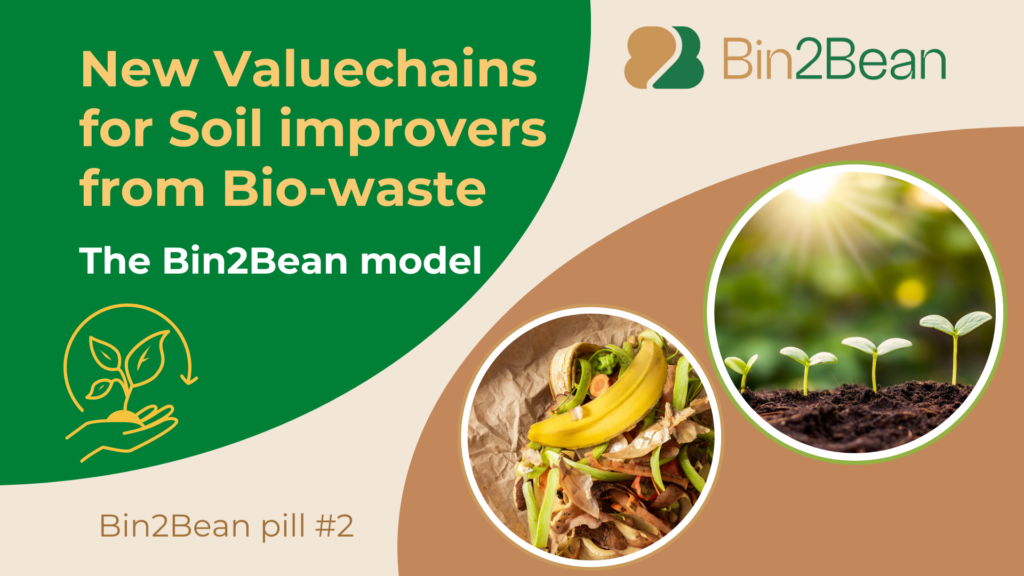The EU-funded project Bin2Bean aims to increase the quantity and quality of biowaste composts. Bin2Bean focuses on the entire value chain from collection to use. In view of erosion and decreasing humus content in many soils in Europe, composts from bio-waste and green waste serve as a means of improving the soil: they increase the humus content, intensify soil life, increase water retention capacity and loosen the topsoil. The proportion of poorly degradable humic substances also contributes to the reduction of CO 2 emissions by sequestering carbon.

A prerequisite for the use of such composts is their quality. In every product value chain, quality assurance is the responsibility of all those involved in the chain – this is also the basic idea behind Bin2Bean.
For this reason, all stakeholders along the chain were invited to participate in one of three “Living Labs” in
order to optimise the respective regional process from bio-waste to the use of compost. The living labs in Hamburg, Amsterdam and Egaleo are supervised by Wageningen University (Urban Economics department) and EUROQUALITY (Bordeaux) and organised by local experts, e.g. in Amsterdam by the AMS Institute, a research institution shared by the City of Amsterdam and Dutch universities.

A major challenge for all three Living Labs is to increase the quantity collected without any loss of
quality – and to do so with a high population density: Hamburg’s successful work in bio-waste
recycling for over thirty years is to be extended to large housing estates, among other areas.
Amsterdam, with around 5,000 inhabitants/km², can often only work with underground depot
containers in narrow streets and along canals. Egaleo near Athens, with 65,000 registered inhabitants
on just 6.5 km² and several thousand students at the neighbouring university, has so far only
collected organic waste in a few areas.
N³ Thinking Ahead (Voerde, Germany) provides support in optimising the respective collection methodsand ensuring quality in the corresponding plants. The laboratory of the Finnish Food administration, Ruokavirasto (Helsinki), is responsible for coordinating the analytical testing of compost and soil samples.

The composts are to be further optimised with a view to soil health. A “healthy” soil can fulfil specific
functions. An “unhealthy” soil cannot do this due to a lack of certain trace substances or biodiversity.
These deficiencies can be overcome either by controlling composting to provide adapted composts
or by composts that are already on the market and are suitable for eliminating certain deficiencies.
Experts from the Plant Breeding Department of Wageningen University, the Danish Technical
University and N³ are therefore looking for suitable indicators of the effects of compost on soils.
If it is possible to produce good products from compacted areas at a reasonable cost, the way is clear
for economically viable business models – this is also part of the project, which is being supervised by
Italbiotec (Milan). For example, quality-assured composts fulfil the EU requirements for organic
farming, which is becoming increasingly important. To ensure that farmers are satisfied with the
composts, cooperation and quality assurance are required along the entire chain: from bin to bean.
Written by Henning Friege
Originally published in German on Mullandabfall.com

